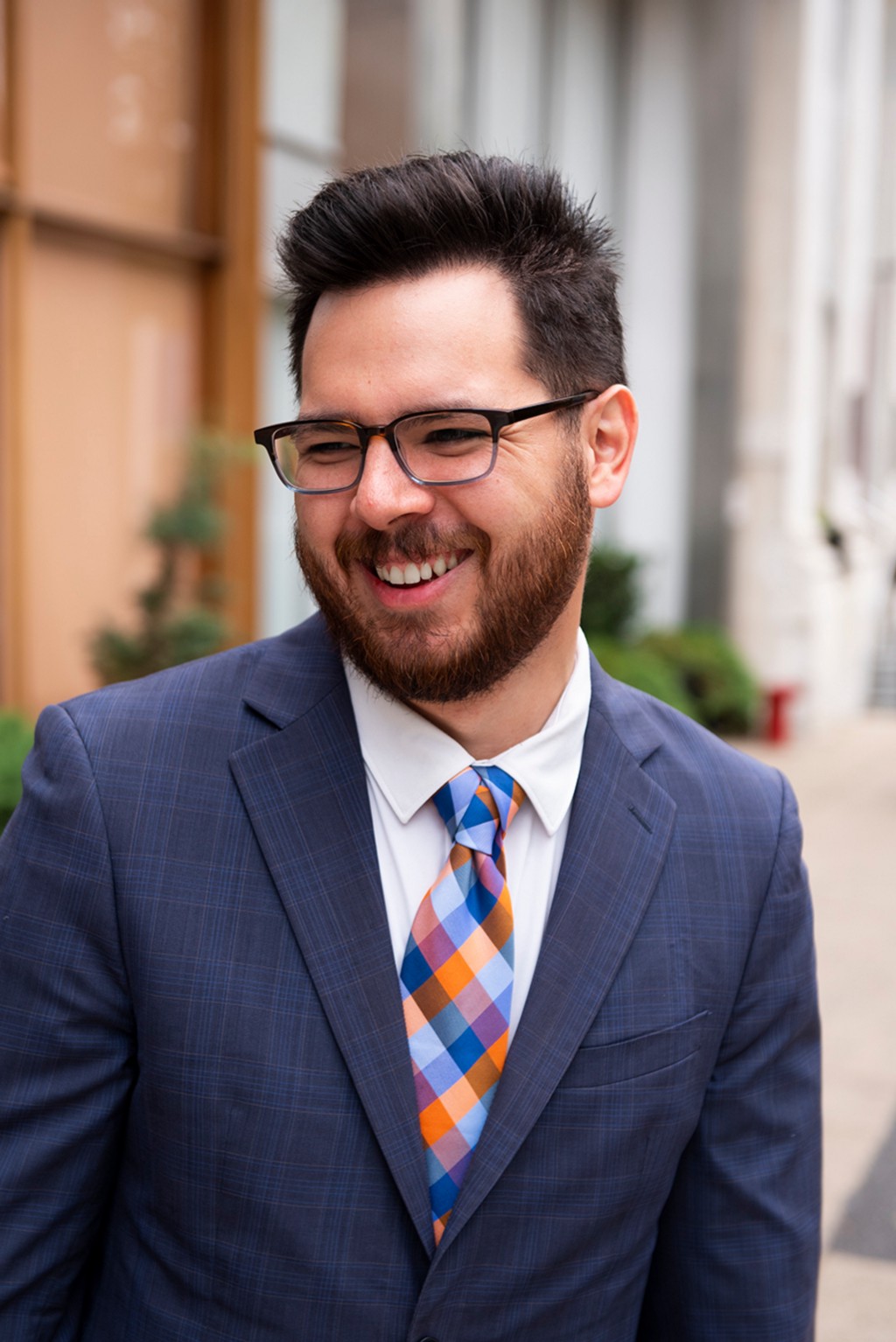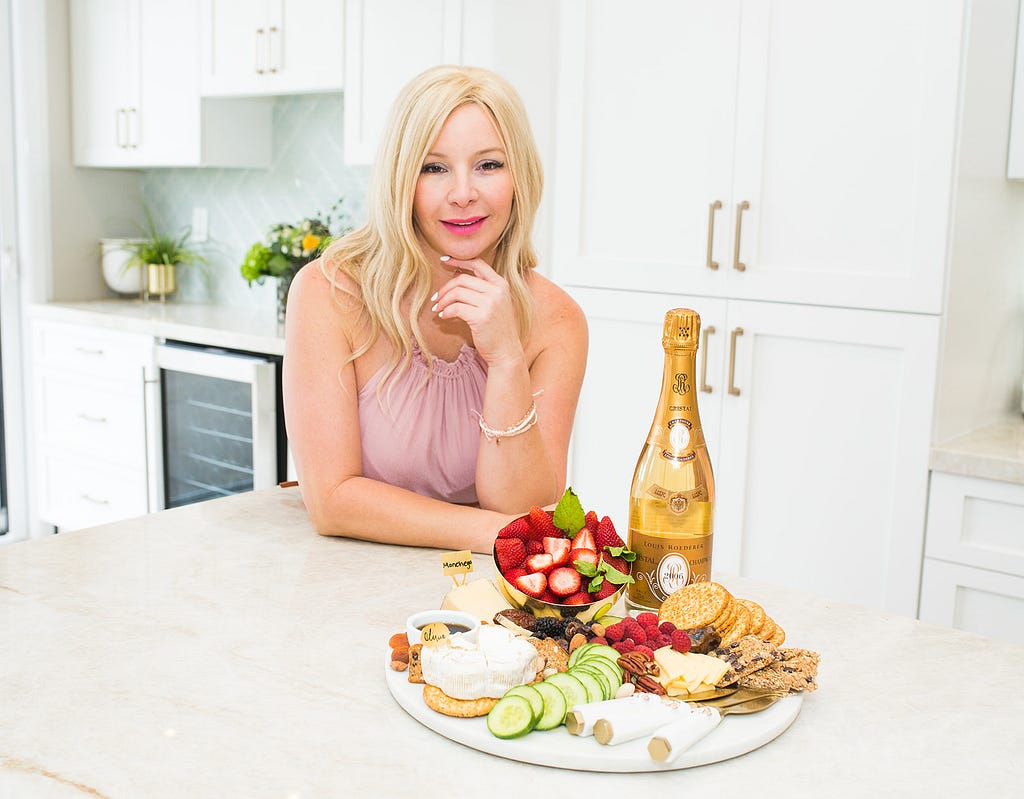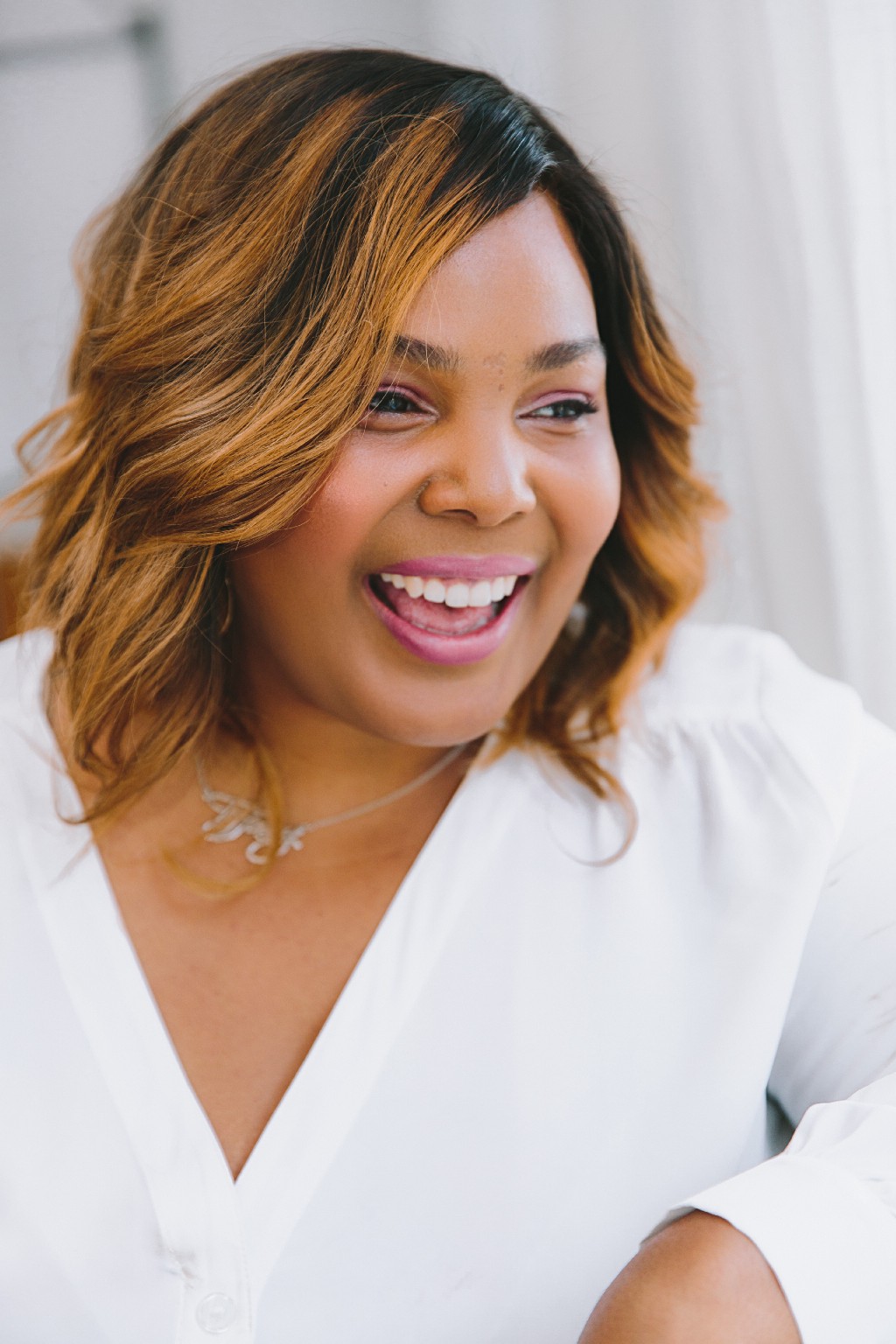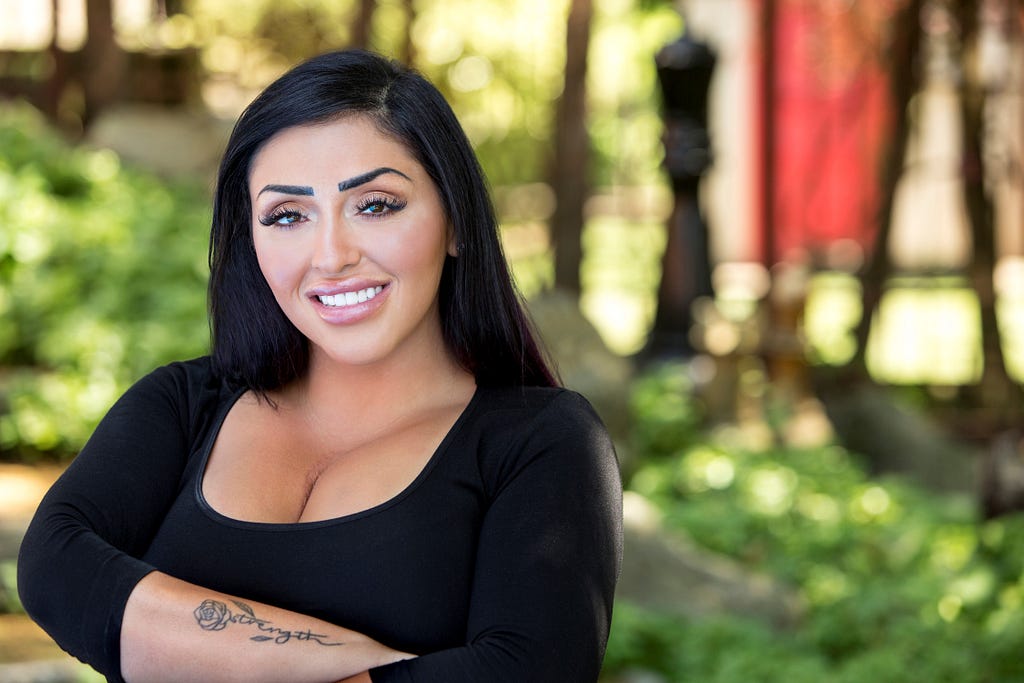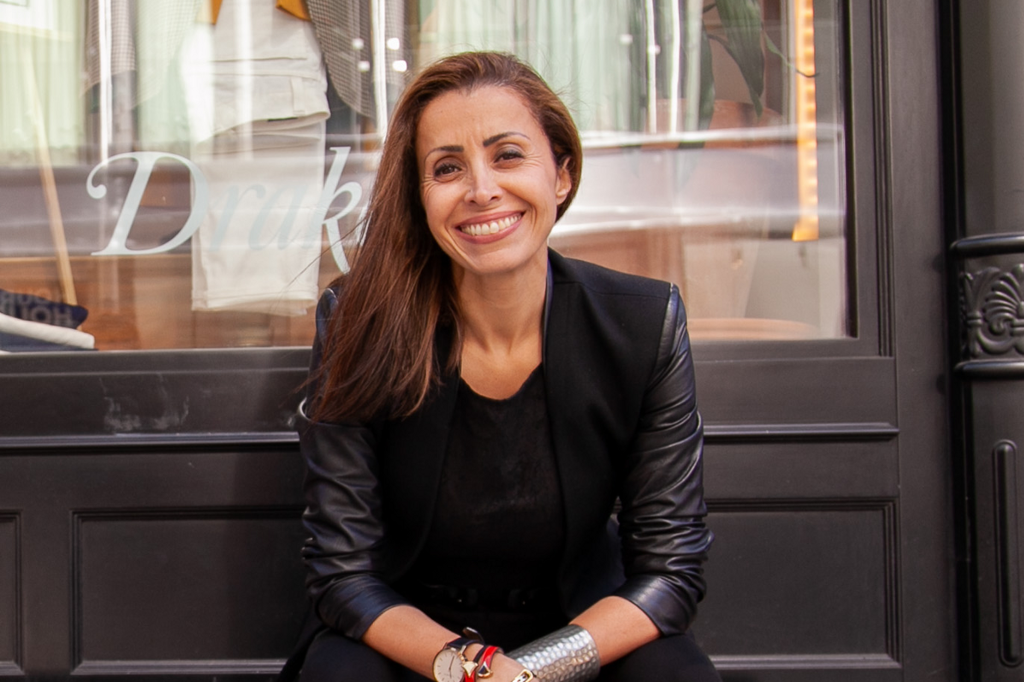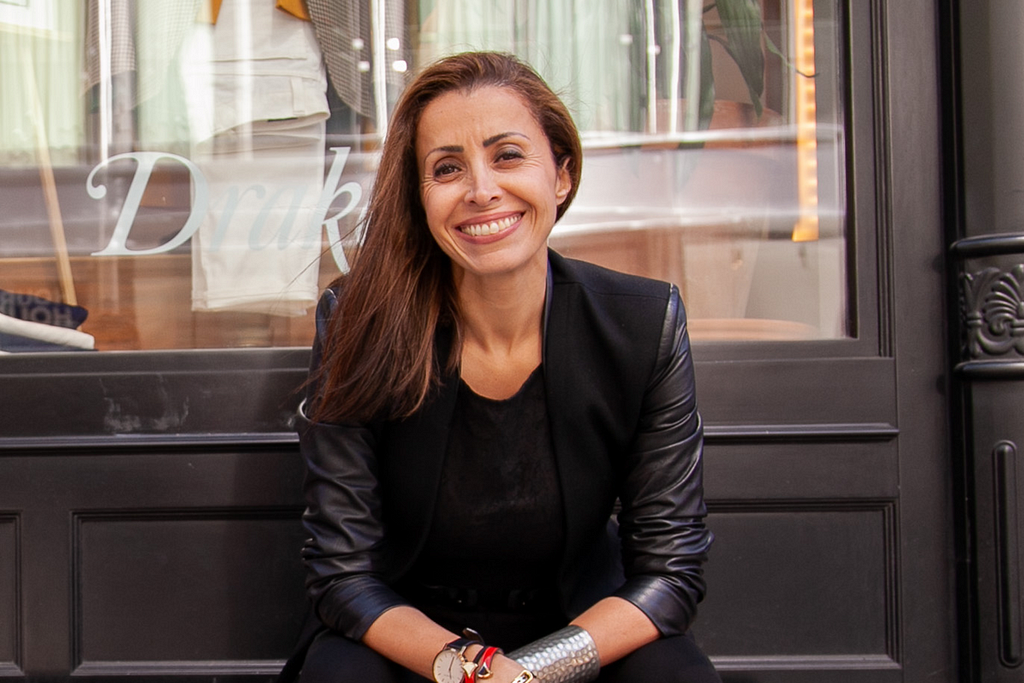Frank Perri Of Philadelphia Hypnosis: Five Things We Can Do To Develop Serenity And Support Each Other During These Anxious Times
An Interview With Candice Georgiadis
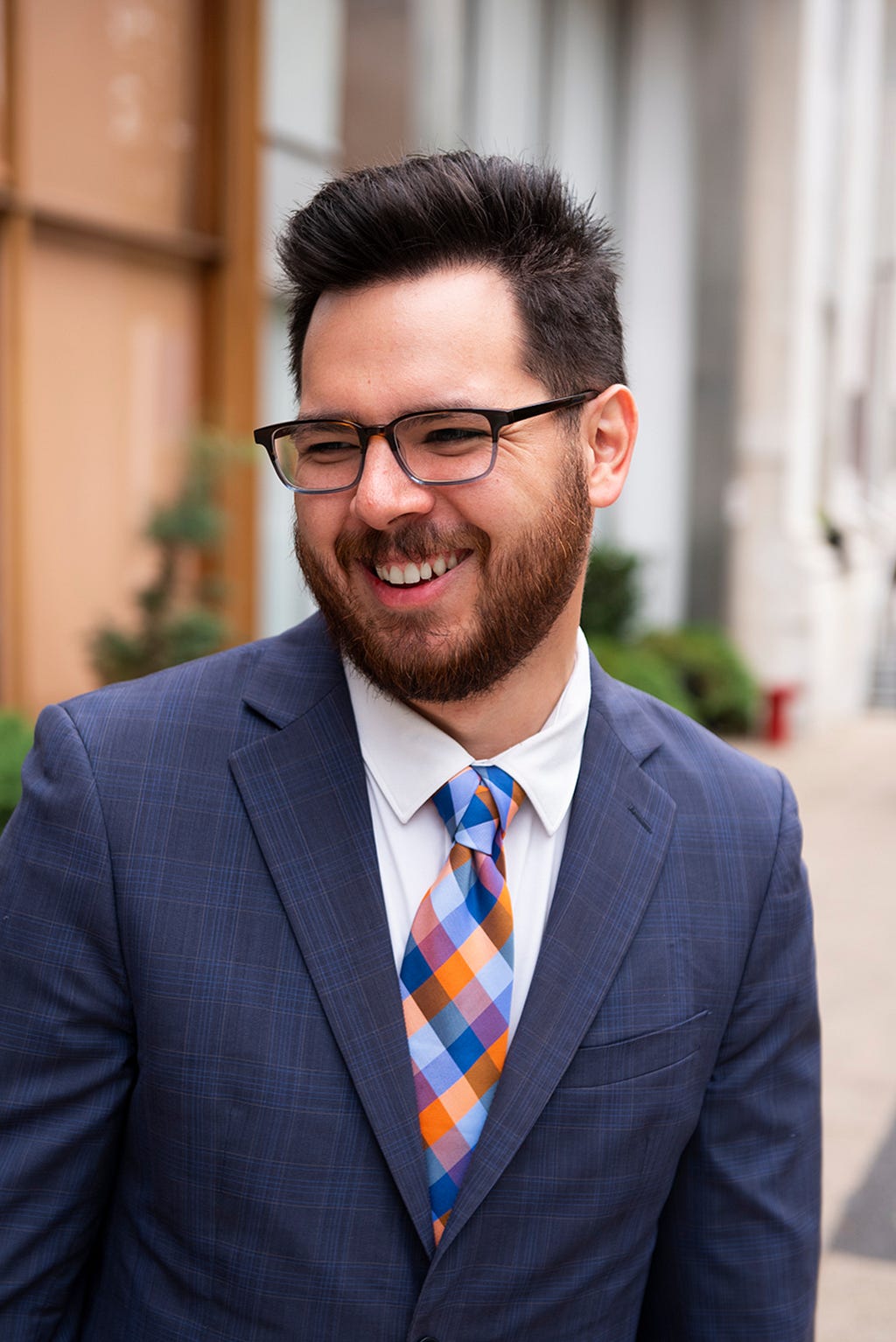
Learn Self-Hypnosis. I would be remiss if I didn’t mention a skill that I teach to nearly every single one of my clients, and which I use every day, which is self-hypnosis. This is a skill that I believe everyone could benefit from. It comes in lots of different forms, and when you get really good at it, you can do it basically anywhere. I recently used it when running a tough mudder obstacle course and needed a boost of focused commitment to run up the side of a 12 foot quarter pipe. While I was watching everyone who hesitated slide down, I hypnotized myself mid-race to clear it and did so on the first try.
As a part of my series about the the things we can do to develop serenity and support each other during anxious times, I had the pleasure of interviewing Frank Perri.
Frank Perri is a certified professional hypnotist, and the director of Philadelphia Hypnosis Center. He uses therapeutic hypnosis techniques to help his clients learn how to use their minds more effectively to quit bad habits like smoking cigarettes, find the drive to jump start new healthy habits like exercising, and to overcome negative emotions like fear, stress, or anxiety.
Thank you so much for doing this with us! Our readers would love to “get to know you” a bit better. Can you share with us the backstory about what brought you to your specific career path?
In a way, I found this path by mistake. I first got into hypnosis when I was in college. At the time I was majoring in Theatre to be a performer. In addition to acting, I also performed a lot of magic. The school I went to was known as a party school, and I would practice new magic throughout the week and perform on the weekends at parties. I began getting the reputation of “Frank the Wizard” or “Magic Frank.”
One of the magic teachers I followed started putting out products on what would now be called Street Hypnosis, which is pretty much hypnotizing strangers on the street for fun. I went to his workshop in Vegas and found I actually had a real talent for it. I brought my skills back to the parties and started hypnotizing my friends. So, for a time, my aspiration shifted to doing comedy stage hypnosis. However the bigger rabbit hole that opened up for me was the psychology behind it all, and I was hooked on learning as much as I could. Pretty soon I started learning about therapeutic applications of hypnosis and trained under as many teachers as I could find. Here I am, over a decade later, still practicing, still learning, and still finding there’s even deeper to go.
Can you share the most interesting story that happened to you since you started your career?
Wow, there are so many ways I could answer this. I think the stories that fascinate me most are the ones where I tried something I wasn’t sure was possible, and we proved it to be possible.
Here is the story of how, by request, I hypnotically erased my roommate’s memory for almost 2 months. A few years ago, my roommate and I were having a conversation about how unfortunate it is that you can only experience stories (whether books, movies, video games) for the first time, once. Especially if there’s a twist — you will always know that twist is coming. (I’ll never be able to watch Fight Club again and not know who Tyler Durden is.) In that conversation, the idea was born of hypnotizing someone to forget a movie or a book so that they could experience it for the first time again. We thought this would be possible because I create hypnotic amnesia all the time. In shows it’s often used for fun, like making someone forget the number 4, or not being able to remember what their name is.
We tested this by rewatching the Matrix, and it worked like a charm. Now the really interesting thing is what happened next. My roommate wanted me to hypnotize him to forget the Mass Effect Trilogy, which, for those who don’t know, is a video game series — we are talking about upwards of 100 hours of gameplay, so I would have to hypnotize him to forget this thing for weeks, if not months. I legitimately did not know if hypnotic amnesia would last that long. I took some time to devise a strategy, and began erasing! I was honestly surprised by how well it worked. I watched him replay this series for weeks and be surprised at every plot twist, every choice. He reported it was all fresh to him.
What advice would you suggest to your colleagues in your industry to thrive and avoid burnout?
I think a big challenge for anyone in the healing space, specifically, is to remember that we are human and that we need help and care too. There is an easy trap to get stuck in, maybe it’s pride, where it’s easy to think that because I help people solve all these problems in their lives that I should have all my problems easily handled. That’s just not true. For example, I lost someone close to me not that long ago and while I knew what I should have been doing and I had the tools for healing, I recognized that it was too much for me to do alone, and so I hired a therapist. While our days are spent helping others, it’s important not to forget about our own needs as healers. We often need help too.
What advice would you give to other leaders about how to create a fantastic work culture?
If we’re talking about leadership, I have to share my favorite quote on leadership, which is, “True Leaders don’t make followers, they make more leaders.” If you can inspire those around you to be more and if you can help people feel like they themselves and their work is important, or feel connected to a team/ community, they will be both happier and more productive. Find the potential in those around you, and shine a nurturing light upon it.
Is there a particular book that made a significant impact on you? Can you share a story or explain why it resonated with you so much?
Tough question, I could go in several different directions. A book I read a few years ago that sent me down a whole rabbit hole was “Why we sleep” by Matthew Walker. It’s a book I’ve basically been recommending to everyone since I read it. I’ve always known that sleep was vital to our wellbeing, but the book put that into a much clearer perspective. For me it influenced two changes. First I’ve made getting better sleep a priority in my life, and I really have felt the difference in my day to day as a result. Additionally, it inspired me to start focusing on diving deeper into sleep science and focusing more of my hypnotherapy practice on helping others achieve healthier sleep.
Ok, thank you for all that. Now let’s move to the main focus of our interview. Many people have become anxious just from the dramatic jolts of the news cycle. The fears related to the coronavirus pandemic have only heightened a sense of uncertainty, fear, and loneliness. From your experience or research what are five steps that each of us can take to develop serenity during such uncertain times? Can you please share a story or example for each.
- Make serenity a practice. In my experience, if you want to develop more serenity, it helps to think of it as a practice; a practice you can continue to develop. It is common to look at something like serenity and just think, “I don’t have that,” as if this is a static fact of your life. I like to teach my clients to think of everything as a skill. You can teach yourself serenity, just like you can teach yourself to play a guitar. This also takes much of the pressure off of getting it perfect right away. If you never touched a guitar before, it would be absurd for me to hand you one and ask you to play me some Hendrix. We all start somewhere. Admitting to yourself that you’re not as serene as you’d like to be is the first step. Once you accept that, you can simply start practicing day by day. This might seem like a subtle shift in mindset, but for many it’s a massive one. I work with so many clients trying to make changes in their lives, and they can’t see the journey forward because they think the change is like an on-off switch. Instead, think of it like a dimmer switch where you will gradually develop the skill of serenity. The other value of viewing serenity as a practice is that, like many skills, if you don’t use it you lose it. Thus, it’s important to continue practicing serenity throughout your life. Over time it becomes more automatic, but you’ll never play that Hendrix song if you don’t start by first practicing your scales.
- Limit how much news you consume. I think It is so appropriate that you mentioned the news cycle earlier, because all this doom and gloom, itself, can become addicting. There is a simple rule of the mind: What you focus most on will become your reality. If you obsess on the stressors in your life, you will be more stressed. I had a client who came to see me for this exact reason. Let’s call him David. David was addicted to checking the news. He was smart enough to realize that every time he saw the news, he got angry about what he was seeing, and yet he compulsively kept checking every time he had a moment free. As his world view became increasingly infuriating day by day, and his anxiety skyrocketed. I think many of us can relate to this in these times of unrest, when so much of the news is negative. We want to stay informed, and it is important to do so, however much of the news is just more of the same. I think most of us are familiar with the serenity prayer: “God grant me the serenity to accept the things I cannot change, the courage to change the things I can, and the wisdom to know the difference.” One of the big problems with much of the news is it focuses on these enormous problems that most of us feel powerless to do anything about. What’s the point when nothing you do feels like it makes any difference? A mindset of powerlessness can easily overwhelm us when we focus too much on giant world problems. However, there are many things that are well within our power to control, and we can often miss them because they feel small and insignificant. Trust me, they aren’t. When David finally broke his obsession with checking the news, he found that he was able to calm down much more easily by focusing instead on positive things in his life. For him, this was his business and his family. The last time I spoke with David, he said he was only checking the news a few times a week, and was feeling so much happier.
What you focus on profoundly sets your mood, so choose what you focus on carefully. - Keep a Gratitude Journal. I’d like to take a moment to expand upon a fact about our minds to really hammer home what I feel is an important lesson. When you introduce an idea into the subconscious mind, and the subconscious mind accepts it as true, your body will manifest that idea into reality. This is how, if you’ve ever seen comedy hypnosis, the woman on stage suddenly can’t remember her name, or starts behaving as if she’s a wild animal. No matter how absurd, if her subconscious mind accepts that idea, she will act on it impulsively. In my time as a hypnotist, I’ve seen and performed some crazy feats just by hypnotically suggesting ideas to the subconscious mind. I’ve had people completely hallucinate flying through the sky, start feeling woozy from drinking water they thought was Vodka, have their feet feel so heavy they literally couldn’t lift them off the ground. I use these somewhat absurd examples to really drive home the fact that ideas are powerful! Hypnosis is not the only way of introducing ideas in the mind, it is simply a tool to shortcut the process. Our minds are constantly absorbing ideas from the world around us. So where a moment ago we talked about minimizing negative ideas entering your mind, you can profoundly influence your mental state by practicing introducing ideas that will help you in the direction that you want to go. One simple technique I teach many of my clients working to overcome anxiety, and that anyone can start doing today, is the practice of gratitude journaling. It might sound weird to some people (I was one of those people once upon a time), but I’ve seen both in my life and in my client’s lives the impact it can make over time. If you’ve never heard of it, all you do is set a timer — I’d recommend 5–10 minutes to start — and just write down everything you are grateful for in your life. It can be big or small, and from any area of your life. Look for things you take for granted. Do you have a house to go back to, do you have friends or family who love you, did you have a tasty breakfast? Our brains tend to glance over the countless tiny positive aspects of our lives when they become commonplace, however as you develop an eye for all the good things that are happening in your life, your life outlook starts to rise. I won’t say that you won’t feel stress, pain, or worry, but they will sting less because it can profoundly help you feel like there is more good in your life. You’ll feel more hopeful, even serene.
- Prioritize getting better sleep. I alluded to this earlier. It might seem simple, but I can’t stress enough how much a healthy full night’s sleep can profoundly impact our mental and physical wellbeing. So many of us see sleep as a waste of time, and prefer burning the candle at both ends. There’s this pervasive “I’ll sleep when I’m dead” mentality, throughout our culture, that is clearly impairing the quality of our lives.
Since we’re talking about serenity, take a moment to think about what you imagine serenity to feel like. I’ll bet you it feels well rested, doesn’t it? I bet you it doesn’t feel like being jacked up on caffeine after only 5 hours of sleep. Even if we were to look at sleep from a strict utilitarian, productivity point of view, prioritizing sleep still makes sense. The research is actually quite clear that when well rested, you can accomplish more in less time. There are a growing number of companies that are putting nap rooms in their offices to make sure their work forces get enough sleep because they’ve realized a well rested work force not only accomplishes more, but also makes fewer mistakes. There are countless guides on how to get better sleep. If you’re not familiar with them, simply google “sleep hygiene.” What I want to emphasize here is committing to a mindset of prioritizing sleep. Returning to the theme of subconscious ideas, when you feel something is important, you will automatically make more time for it. These days we hear more and more about burnout because people are doing the opposite. They are focusing all of their attention on working as much as they possibly can. That’s what they feel is important, and they are giving more and more of their time to the hustle. I can’t count the number of clients I’ve supported with sleep pattern issues. Obviously, I do this with my clients who come to me specifically to sleep better. However, I also help many of my other clients improve their sleep: weight loss clients improve their impulse control when well rested, and clients suffering from heightened stress and anxiety benefit from higher quality sleep. If a well rested mind and body doesn’t invite in more serenity, I don’t know what will. - Learn Self-Hypnosis. I would be remiss if I didn’t mention a skill that I teach to nearly every single one of my clients, and which I use every day, which is self-hypnosis. This is a skill that I believe everyone could benefit from. It comes in lots of different forms, and when you get really good at it, you can do it basically anywhere. I recently used it when running a tough muddier obstacle course and needed a boost of focused commitment to run up the side of a 12 foot quarter pipe. While I was watching everyone who hesitated slide down, I hypnotized myself mid-race to clear it and did so on the first try.
From your experience or research, what are five steps that each of us can take to effectively offer support to those around us who are feeling anxious? Can you explain?
- Get buy-in. We all want to help those we care about. However, as well intentioned as we may be, a step that is often skipped is getting buy-in. Does that person want your support or help? This can be difficult if the answer is, “no.” We might feel powerless, but I’ve learned the hard way that you can’t help someone who doesn’t want your help. Best case scenario: they will probably ignore your help. Worst case scenario: They’ll feel infringed upon and resent you for your unsolicited help. An added benefit of this step is that, by giving them a choice, you instill them with a small sense of agency. A simple way to get buy-in is to simply ask, “Do you need anything?” or “Can I support you here?” Then respect their answer.
- Rapport, rapport, rapport. There was a study done to determine among various therapeutic, coaching, and wellness modalities what the common factors were among the most practitioners who saw the most success with their clients. The number one factor across all modalities was the practitioner’s ability to develop a strong rapport with their client. If you ever study any kind of influence or persuasion, rapport is a key step.
So if you want to help support someone, you’ll want to find any way to develop and maintain that rapport with them. - “Ears, Mouth, or Feet?”. Once you have buy-in, you’ll want to find out what they need, or how best to support them. This can be more or less difficult for different people, because not everyone necessarily knows what they need. Generally speaking, however, a good first step is to make space for them to express themselves. A useful mnemonic device I go to whenever someone seems upset is to start by offering my ears, my mouth, or my feet.
–Ears means they want to be heard. They want me to simply listen to them without feedback or critique. Maybe I’ll reflect back what I’m hearing, but “ears” means you reserve your judgement unless asked for it later. Unless otherwise requested, I will usually default to this to get started. The feeling of being really heard and understood is a powerful nutrient many of us crave. When you offer someone your attention, that alone can often be a powerful source of support. Mouth means they want to discuss something, or maybe they want your advice. This is where you are more welcome to offer critiques or interpretations of a situation. However, you’ll still want to be listening to them authentically. “Mouth” is not an invitation to bulldoze them with your opinions. We often want to jump straight to this step, because we think we can solve their problems. This is powerful when asked for, but can be insulting when unwanted. Feet means they want to be left alone and given space. You might ask them if you can follow up or check in with them later, and if so when? (Minutes? Hours? Days?) This one is the simplest, but sometimes one of the hardest for some to simply walk away. However, by respecting their wishes, you are actually supporting them by giving them what they ask for. - Nourish them. This starts getting more subjective, but when I’m helping someone, I often think in terms of, what nutrient does this person need? Obviously when we are hungry we eat, when we’re thirsty we drink. However we have emotional needs as well. When we are lonely, we need connection. When our bodies feel stiff, some sort of movement or exercise might be called for. If, while maintaining rapport, and listening keenly, you recognize a nutrient that person is starving for, see if there is a way you can provide it, or move them towards obtaining it. This may be as simple as sharing this insight. Again, it’s common when people are starved for a nutrient long enough, they get used to it and don’t recognize they’re hungry.
- Treat them as whole. Do your best to never see anyone as “broken.” People come into my office all the time telling me, “I bet I’m going to be a tough subject,” “I feel like a lost cause,” or asking “What is wrong with me?” When we are overwhelmed, it is common to feel like we’re broken. Remember, when you introduce an idea into the subconscious mind, your body manifests it into reality. You will FEEL broken. Don’t validate that story. Treat anyone you want to support as whole and complete. Do your best to see them as a totally capable person simply struggling with a difficult time. Subconsciously, they will pick up on this. It may be subtle, but it is a profound way to support someone you care about.
What are the best resources you would suggest to a person who is feeling anxious?
That answer is going to be different for different people. I’ll admit that I am biased, but self-hypnosis and hypnotherapy are very powerful for helping with anxiety. Finding a good therapist who fits with you is also helpful.
Additionally, find what nourishes you, and lean into that. Maybe it’s exercise, or music, being in nature, or writing.
Finally, please make it a habit to get a good night’s sleep.
Can you please give us your favorite “Life Lesson Quote”? Do you have a story about how that was relevant in your life?
“Growth happens at the edge of your comfort zone.” I like this phrasing because it works on several levels. If you stay within your comfort zone, nothing changes. Do what you’ve always done, and you’ll get what you’ve always gotten. However the opposite extreme isn’t much more useful. If you move too far outside of your comfort zone, you’ll likely break down. The edge of your comfort zone is where the magic happens. I’ve practiced this idea for over a decade now, training myself to find what makes me uncomfortable but feels worth expanding upon and leaning into that edge. I’ll share something a little more fun I’ve started doing recently which is dancing. I’ve always wanted to dance, but I’m very intimidated by it. It always felt strange because I’m not at all shy in front of an audience, but put me on a dance floor and I have frozen up in the past. So I started taking lessons, going to social dance events, and discovered that I really enjoy it. I’m feeling my reservations peel away and making new friends in a new community.
You are a person of great influence. If you could start a movement that would bring the most amount of good to the most amount of people, what would that be? You never know what your idea can trigger. 🙂
I see so much division and polarization, and one thing I’ve realized is that everyone you meet, no matter their politics, religion, culture, whatever, they are simply trying to do the best they know how to with the tools they have available to them. If there’s one thing I wish I could bring to the world, it would be more community and more genuine connection, and the ability to really see each other. We are all connected on social media, but something I think is really missing is intimacy.
What is the best way our readers can follow you online?
My website is www.PhiladelphiaHypnosis.com
I’m fairly inactive on social media at the moment, but I plan to change that soon. My handle on Instagram, Facebook, and twitter is PhilaHypno
Facebook.com/PhilaHypno
instagram.com/PhilaHypno
twitter.com/PhilaHypno
Thank you for these fantastic insights. We wish you only continued success in your great work!
Frank Perri Of Philadelphia Hypnosis: Five Things We Can Do To Develop Serenity And Support Each… was originally published in Authority Magazine on Medium, where people are continuing the conversation by highlighting and responding to this story.


